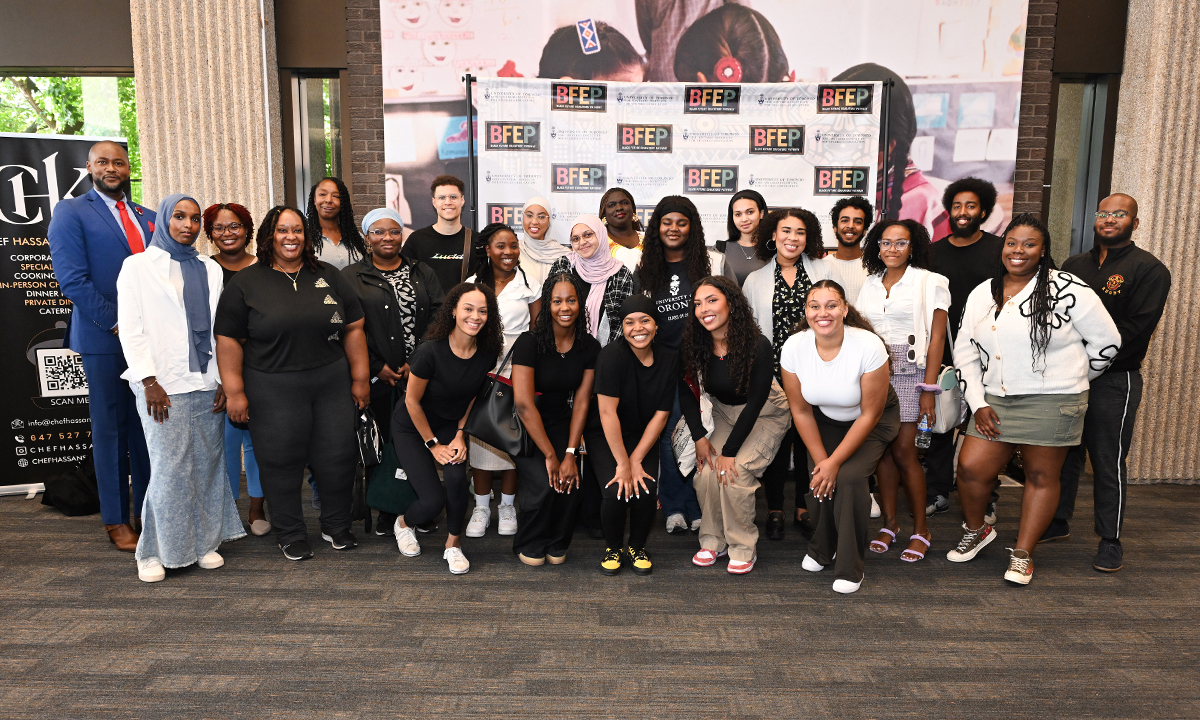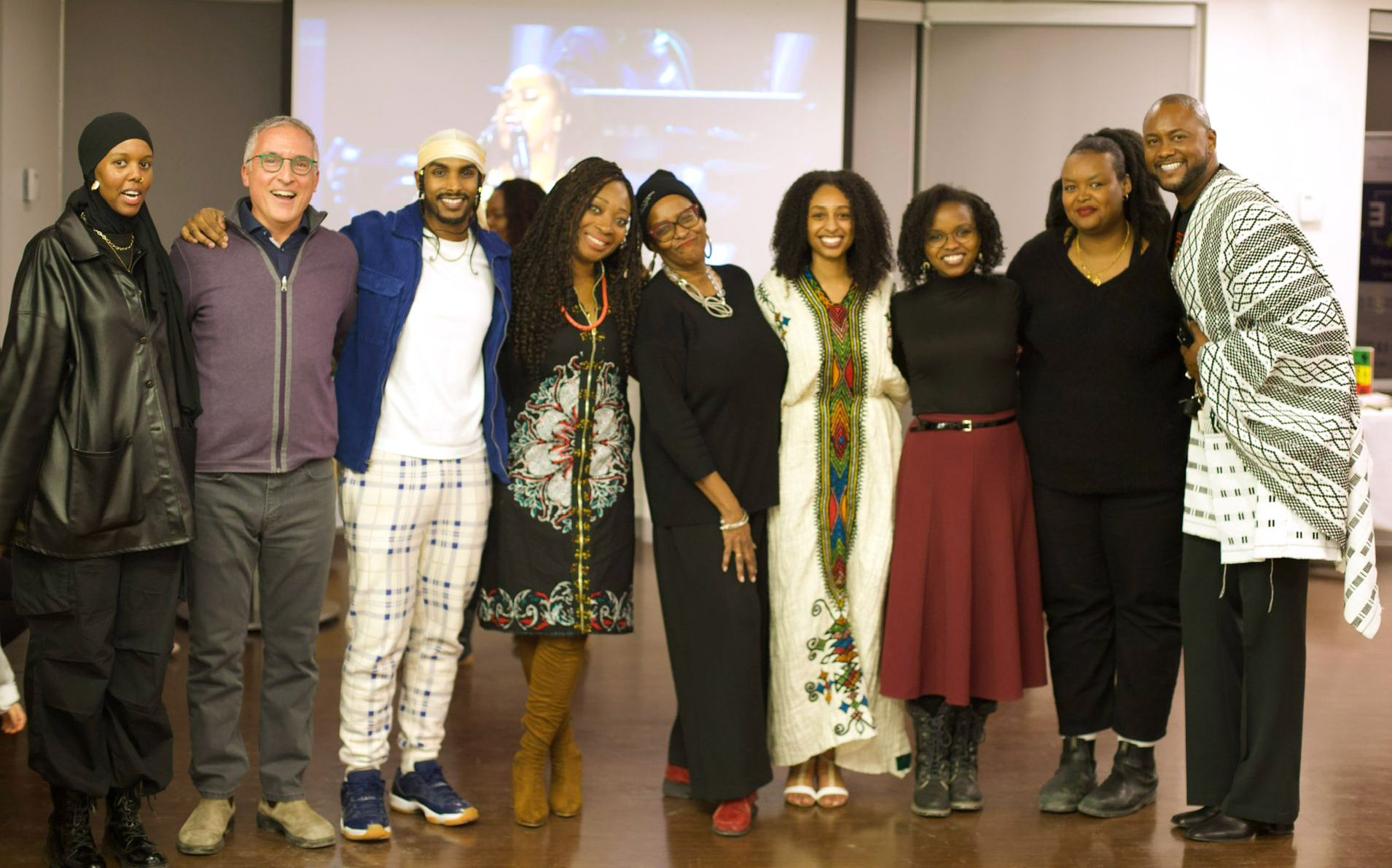‘This is real action’: New OISE teacher training pathway will boost number of Black educators in schools

This week, over 30 Black aspiring educators will start their journey in OISE’s Master of Teaching program as the inaugural cohort of the Black Future Educators' Pathway (BFEP).
Designed to bridge gaps in representation and access, BFEP creates an equitable admission process for Black learners and offers comprehensive support throughout their time in the program. To mark this initiative, BFEP will celebrate its launch on Sept. 5.
Professor Andrew Campbell, BFEP coordinator, says numerous studies have shown that the lack of diversity among K-12 teachers fails to reflect the student population, leading to inequitable educational outcomes. Students miss out on the benefits of having role models who implement culturally responsive and critically conscious pedagogy. BFEP aims to address these issues head-on, he says.
The pathway began taking shape in 2021, initially introduced as Access Pathways for Black Educators. What sets it apart is its emphasis not only on recruitment but also on student retention through specialized programming. This includes thoughtfully developed electives like ‘Black Educator Identities and Practice’ and a targeted practicum that pairs Black teacher candidates with teachers known for commitment to and expertise in anti-oppression pedagogy.
“BFEP’s intentional practicum guaranteed that my placement was going to be supportive and comfortable,” said Abduljabar Nasser, an OISE alum who participated in Access Pathways. “I knew I was going to be in a safer space as a Black individual because my associate teacher [signed up to participate in BFEP] and is trusted within the TDSB.”
Building community and fostering belonging
With over 70 applicants for this year's cohort, Campbell sees this strong interest as a sign that the program is resonating with Black aspiring educators and affirms OISE as a welcoming place for them.
“Overall, I am just so impressed with all the students who applied and those we are accepting. They are all talented, qualified Black individuals who are passionate, have a vision for the future, and want to be change-makers,” said Campbell. “We're taking in Black magic.”
Beyond programmatic excellence, BFEP is also placing a big emphasis on fostering community and inclusion. “It’s one thing to invite people to the table, and another to ensure that the table is set in a way that fosters a sense of belonging,” says Campbell.
To support this mission, BFEP partners with the Master of Teaching Black Educators Association (MT-BEA), which provides peer support, advocacy, workshops, social events, and promotes employment opportunities. Students will also benefit through guidance from the OISE Black Faculty Caucus, participate in monthly academic and mentorship meetings, attend research gatherings hosted by the Centre for Black Studies in Education, and hear presentations from BFEP's Advisory Board and community partners.
For Nasser, the MT-BEA community was the highlight of his time at OISE, serving as a “home place” where he felt understood and supported. “That group kept me going. It was a space for rejuvenation and restoration.”
Campbell sees community building as an ongoing effort and hopes to see more Black faculty and instructors hired to teach within the Master of Teaching Program, along with an increase in courses focused on the Black experience in education.
“We are simply not there yet. There is so much more work to be done to ensure these spaces within institutions are brave and safe for Black students,” said Campbell. “Still, it’s important to pause and celebrate our wins.”

Looking to the launch
What excites Nasser about BFEP’s official launch is that it is an initiative that addresses a longstanding issue. “For so long, we’ve heard the narrative of ‘We need more diverse teachers, we need more men in education, we need more Black educators,’ but we haven’t seen the supports,” he says. “This is real action.”
“Research consistently shows that a diverse educational community enriches experiences and supports more equitable outcomes for all students,” says Professor Erica N. Walker, Dean of OISE. “At OISE, diversity is a fundamental aspect of our educational excellence.
“The Black Future Educators’ Pathway reflects this commitment by recruiting and retaining talented Black educators who bring invaluable perspectives to our schools and communities.”
Nasser credits the BFEP community for its support and for opening many doors, including a researcher position at TDSB’s Centre of Excellence for Black Student Achievement and his first contract teaching job after graduation.
“If you want to maximize your opportunities in education and the resources around you, you definitely want to go the BFEP route,” he says. “It is going to help fuel your goals and your aspirations.”